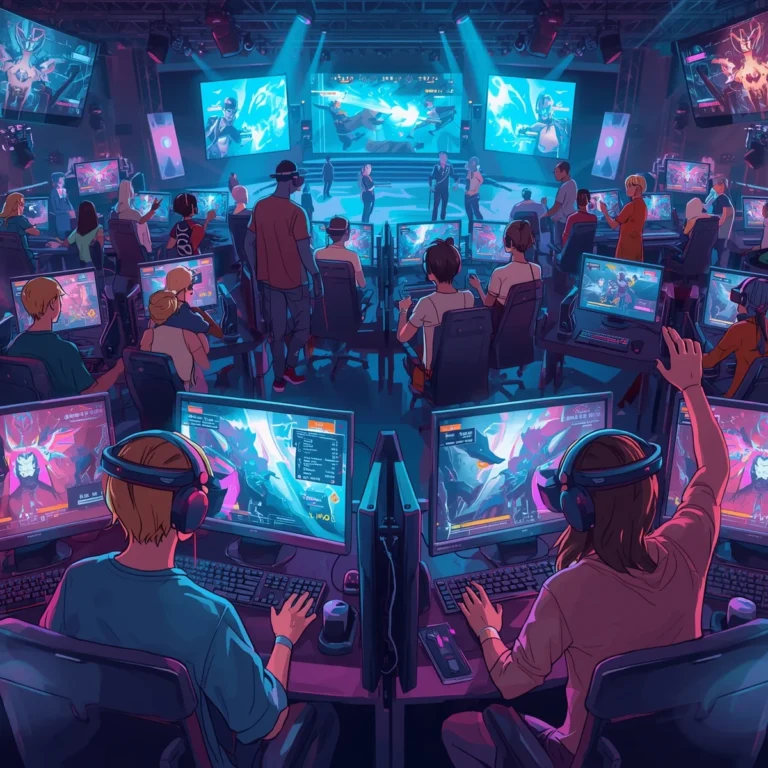Introduction
The gaming industry has seen massive growth over the past decade, with millions of players enjoying both digital and physical titles. Alongside this growth, a practice known as repacking games has gained attention. While the term often sparks curiosity, many people do not fully understand what repacking means, how it works, or whether it is legal and safe.
In this article, we’ll break down the concept of repacking games, explore how it impacts players and developers, discuss the pros and cons, and look at the future of gaming in this context.
What Does Repacking Games Mean?
At its core, repacking games refers to the process of compressing, modifying, or restructuring a video game’s files to reduce its overall size. Repackers take the original game, strip unnecessary components, and apply advanced compression methods so that the final file is much smaller and easier to download.
The main idea is to make large games, sometimes over 100 GB, more accessible to players with limited internet bandwidth or storage space. However, the way repacking is done and distributed has created a lot of debate.
How Repacking Games Works
Repacking a game is not a simple task. It involves technical skills, software tools, and a deep understanding of game files. Here’s a breakdown of the process:
File Compression
Game repackers use specialized algorithms to compress textures, audio files, and other resources without significantly affecting quality. This compression helps shrink the total file size.
Removing Unnecessary Content
Sometimes, repackers remove language packs, extra cutscenes, or optional features that are not essential for the main gameplay. This helps make the repacked version smaller and more manageable.
Rebuilding the Installer
Instead of the original installer, repackers create a custom installation process. This often includes re-encoding data during installation, which takes longer but ensures the game runs smoothly after being unpacked.
Why Do People Download Repacked Games?
Players are drawn to repacking games for several reasons:
- Smaller File Size – Many modern titles are huge, and repacked versions allow faster downloads.
- Limited Internet Speeds – In regions with slow internet, downloading a full-sized game can take days.
- Storage Limitations – Repacked versions help players with limited hard drive space.
- Accessibility – Some players prefer a single, simplified setup without large patches or extras.
The Dark Side of Repacking Games
Legal Issues
Most repacked games are linked with piracy. Since they involve redistributing copyrighted software without permission, downloading or using them can violate copyright laws. Game developers and publishers often face financial losses because of widespread repacking.
Security Risks
Repacked files can sometimes include hidden malware, spyware, or viruses. Since they are distributed through unofficial platforms, players take a significant risk when installing them.
Lack of Support and Updates
Players who use repacked games often miss out on official patches, updates, and customer support. This can lead to broken features, bugs, or compatibility issues with new systems.
Repacking vs. Official Game Compression
It’s important to distinguish between repacking games by third-party groups and official compression by developers.
- Official Compression – Many developers optimize their games to reduce size while maintaining performance. This includes better asset management and built-in compression techniques.
- Third-Party Repacking – Repackers work outside of official channels, often modifying or redistributing copyrighted content without authorization.
While official compression is safe and legal, third-party repacking typically falls into a gray or illegal area.
Popular Repack Groups
Over the years, certain groups have become well-known in the gaming community for their repacks. These groups often develop reputations based on the speed, quality, and reliability of their releases. While they attract large followings, their work still exists outside legal frameworks.
Pros and Cons of Repacking Games
Benefits
- Reduced download size
- Easier installation for some users
- Accessibility for people with low internet speeds
Drawbacks
- Legal risks associated with piracy
- High chance of malware or corrupted files
- Lack of updates, patches, and support
- Ethical concerns for hurting developers’ revenue
Is Repacking Games Legal?
The short answer is no—most forms of repacking involve redistributing copyrighted content, which is illegal. While compression itself is not unlawful, distributing games without permission violates intellectual property rights.
Some countries enforce strict anti-piracy laws, while others may not take repacking as seriously. Regardless, using official sources such as Steam, Epic Games Store, or Xbox Game Pass is always the safest option.
Alternatives to Repacked Games
If you want smaller game sizes but don’t want to deal with legal or security risks, consider these alternatives:
- Cloud Gaming Services – Platforms like Xbox Cloud Gaming and NVIDIA GeForce NOW let you stream games without downloading large files.
- Official Lite Versions – Some developers release lighter versions of their games for players with weaker PCs or limited internet.
- Digital Store Discounts – Waiting for official sales ensures you get legitimate games at affordable prices.
- External Storage Solutions – Investing in external SSDs or hard drives helps manage large titles without sacrificing quality.
The Future of Repacking Games
As gaming technology evolves, the need for third-party repacks may decrease. Developers are increasingly aware of file size challenges and are adopting better compression technologies. Cloud gaming, faster internet speeds, and digital-first strategies may eventually make repacking less relevant.
However, as long as large file sizes remain a barrier in certain regions, repacked games will likely continue to attract attention. The key is whether the industry can provide safe, legal, and accessible alternatives for players worldwide.
Conclusion
Repacking games is a complex and controversial topic. While it provides benefits like reduced file sizes and easier access for players with limited resources, it also comes with serious risks. Legal issues, security concerns, and ethical considerations make it a practice that players should approach with caution.
For gamers, the safest path remains sticking with official releases or exploring legal alternatives like cloud gaming and lite editions. For developers, the challenge is to continue innovating in compression and accessibility to reduce the demand for unofficial repacks.
Ultimately, understanding what repacking means helps players make informed decisions in today’s fast-growing gaming world.





